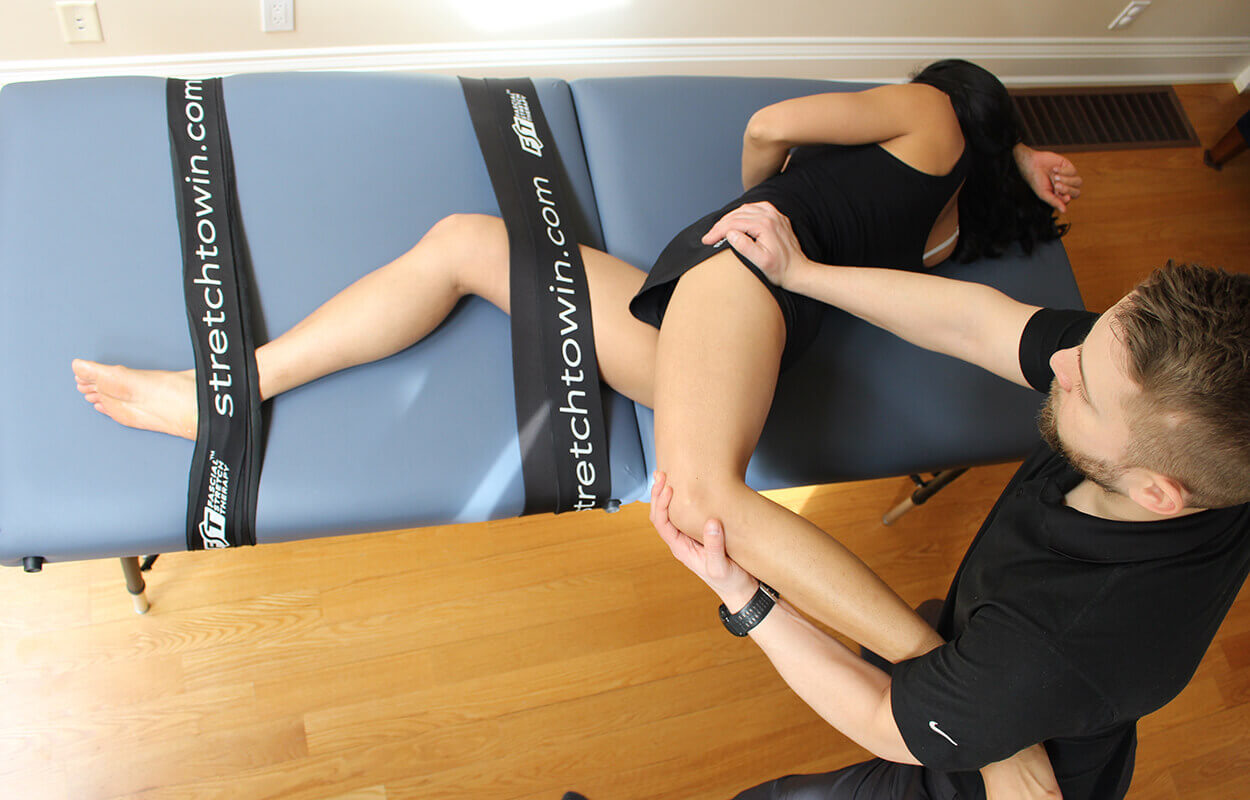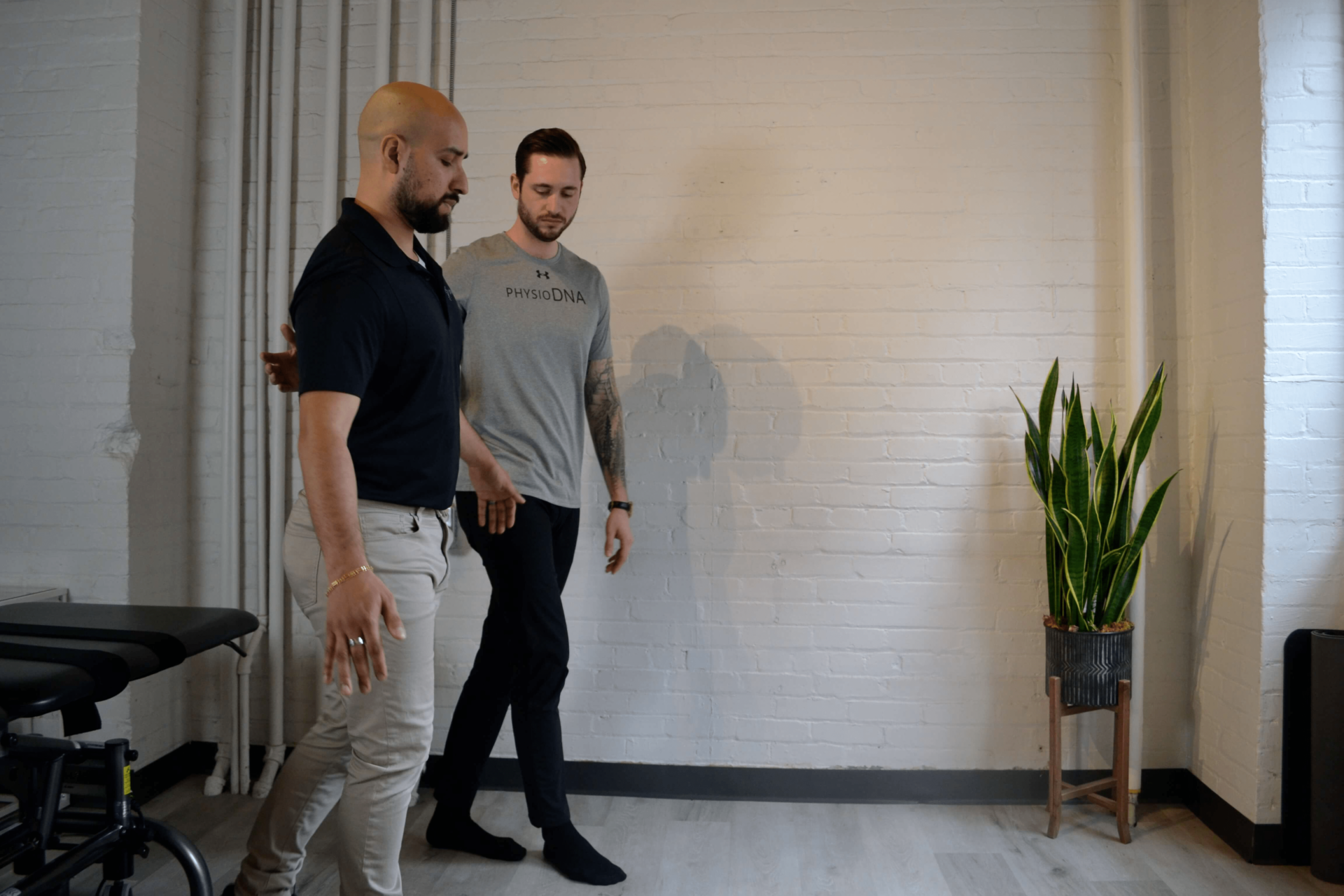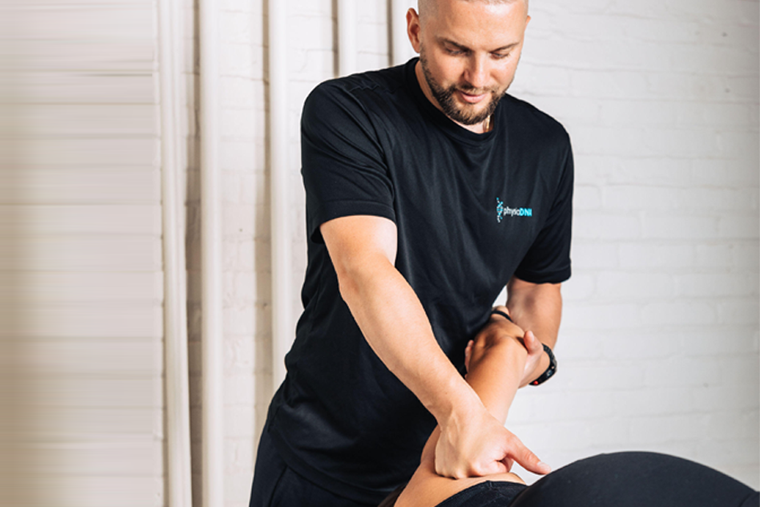Why Physiotherapy
Physiotherapy is one of the allied health professions that, by using mechanical force and movements (bio-mechanics or kinesiology), manual therapy, exercise therapy, and electrotherapy, remediates impairments and promotes mobility and function. Physical therapy is used to improve a patient’s quality of life through examination, diagnosis, prognosis, and physical intervention.
What is orthopaedic sports physiotherapy?
Typically this subsection of physiotherapy focuses on injuries to muscles, joints, tendons, ligaments and bones. Some of the injuries experienced can be classified as sprains, strains, fractures, overuse, ruptures, swelling, contusions and more. The causes of such injuries can vary following an acute or sudden accident or surgery or can be caused by repetitive or overuse injuries. Some injuries can be chronic and longer lasting such as osteoarthritis or ankylosing spondylitis (AS). Our highly trained physiotherapists have the experience and skills to work with acute and chronic injuries, working with each patient individually creating tailored treatment plans to allow optimization of function, decrease pain and improve independence.
Is Physiotherapy Covered by Insurance?
If you have extended health benefits insurance through your work or a private insurance plan, you should be able to use these benefits for physiotherapy services at PhysioDNA. You do not need a referral for physiotherapy services at our clinic. Occasionally insurance companies may require that you need a physicians referral to claim the treatment for reimbursement. Our administrative team can provide you with the necessary support and answer any questions you may have.
Injured in a Motor Vehicle Accident, is this Something PhysioDNA can Help With?
The Team at PhysioDNA is extremely well equipped to assist with Motor Vehicle Accident, bicycle or motorcycle accident claims. We work hand in hand with the insurance company to ensure you have the right support through this challenging time. Refer to our Blog Post on MVA at PhysioDNA for more detailed information on the claims process and how we work with you to get the right care you need as quickly as possible.
Is physiotherapy required before a surgery and after surgery?
A pre-rehab program is a crucial step in establishing a positive training routine before surgery and during recovery for better outcomes. Five reasons to undergo physiotherapy before surgery include:
1. Strengthening muscles before surgery help you return to your routine quicker, and recovery should be smoother.
2. Physiotherapy techniques, especially those incorporating exercise routines, can increase strength and endurance, improving general immunity and making infection less likely.
3. Pre-rehab can help lessen current suffering and the likelihood of severe pain after surgery through approaches like exercise, massage, or cold and heat treatments.
4. Pre-rehab can improve surgery outcomes and even save money if everything goes smoothly. The stronger you are before surgery, the more likely the surgery will be successful.
5. Some patients have found their pre-surgical therapy treatments to be effective enough to cancel their operation. If your health improves significantly after starting physiotherapy, consult your medical team of professionals about future treatment choices and the possibility of avoiding surgery.
Following a successful operation, skilled surgical methods, competent nursing care, and a comprehensive rehabilitation program, Physiotherapy begins in the hospital, when patients are taught how to manage edema, pain, and other complications. Following discharge, a qualified physiotherapist from PhysioDNA can help you achieve your goals and get you back on track. The program begins with a physical assessment of the patient and then identifies the appropriate treatment approach. Postoperative physiotherapy often includes a focus on pain control and tissue healing, with a combination of conditioning exercises, strengthening exercises, and functional rehabilitation. We will collaborate with your surgeon to ensure specific rehabilitation protocol requirements are met.
Some of common types of surgeries that are seen and are treated by our practitioners at PhysioDNA include:
- Elbow and Wrist – Tendon and ligament repair, injection, and fracture
- Shoulder- fracture, rotator cuff repair, arthroscopy, decompression, joint repair, injection
- Hip – Injection, hip replacement, arthroscopy, labral tear
- Knee – ligament, ACL repair, tendon, cartilage, arthroscopy, knee replacement, injection
- Ankle & Foot – bunion, fracture, arthroscopy, ligament repair and joint replacement
Everything is dependent on the nature and location of the fracture. Always visit your surgeon or primary care physician to determine whether it is safe to begin physiotherapy. It is important to note that, early intervention prevents complications. Even with simple fractures, physiotherapy may be required to control pain and swelling and to prevent problems associated with immobility. Within a few days of the incident, a safe exercise regimen to avoid deconditioning, strengthen muscles, and reduce stiffness in nearby joints and muscles can begin.
Some of the physiotherapy treatments that can we use at PhysioDNA is Manual therapy, which is a treatment method involving hands-on techniques used to treat acute and chronic conditions, often reducing pain medication use. Other techniques also include joint mobilization, Soft Tissue Mobilization (STM), and Active Release Technique (ART), nerve glides, which improve joint and tissue mobility, blood circulation, tissue healing, and faster recovery.
Manual therapy
Manual therapy employs hands-on techniques to restore joint and soft tissue mobility, enhancing biomechanics and resulting in a healthy body ready for daily activities and competition.
Dry Needling/Acupuncture
Our practitioners at PhysioDNA use dry needling and medical acupuncture in combination with manual therapy and exercise prescription to manage acute and chronic pain. Dry needling clears trigger points in neck and back muscles, while medical acupuncture addresses pain and inflammation from injuries and chronic conditions.
Exercise Therapy
A physiotherapist is an exercise prescription expert to help patients return to their normal life. After completing education and correcting exercises, they assign patient with an exercise program that can be performed independently at home or in a facility to complement the weekly visits in the clinic. Functional independence is the ultimate goal in rehabilitation protocols. Research shows that retraining and strengthening muscles optimize function and support joints, preventing re-injury. Exercise therapy consists of stretching exercises for flexibility and mobility, strengthening exercises for postural alignment, aerobic exercises for conditioning, and coordination and balance exercises for overall health.
Taping and Bracing
During rehabilitation sessions at PhysioDNA, tape or braces can be used to correct biomechanical issues, improving alignment, retraining muscles, enhancing balance, and providing support for acute pain, particularly in the lower back, through improved alignment.
Here are some examples of how taping and bracing can be used to treat many conditions:
Ankle Brace/taping: we commonly see that the ankle is one of the joints are commonly injured where we can use it for lateral ankle sprains, any strains, and ankle instabilities
Back Brace/taping: braces/taping techniques can be used to treat back issues such as SIJ (Sacroiliac Joint) dysfunction, pregnancy, muscle strains and tightness
Arthritis Brace/taping: we can use this for knee and ankle osteoarthritis & rheumatoid arthritis
Knee brace/taping: our practitioners can use various taping methods or recommend braces for conditions associated with the knee such as patellofemoral syndrome, shin splints, jumper’s knee, ACL, MCL, LCL, and medial and lateral meniscus injuries.
Elbow brace/taping: at PhysioDNA we can conduct the use of taping techniques and recommend braces for conditions associated with the elbow such as tennis elbow and golfer’s elbow.
Wrist brace/taping: Any conditions associated with the wrist such as strains and sprains, carpal tunnel syndrome (CTS), arthritis, bone dislocation, and De Quervains.








